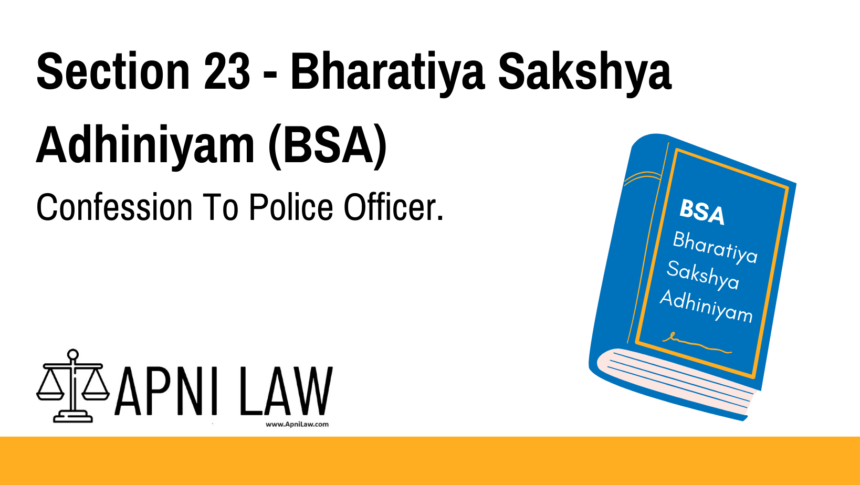Code
(1) No confession made to a police officer shall be proved as against a person accused of any offence.
(2) No confession made by any person while he is in the custody of a police officer shall be proved against him, unless it is made in the immediate presence of a Magistrate.
Provided that:
- When a fact is discovered as a result of information given by an accused in police custody, that portion of the information which directly relates to the discovered fact may be proved—even if it amounts to a confession.
Explanation
This section is a safeguard against coercion and misuse of power by the police.
General Rule:
- Confessions made to police officers are inadmissible in court.
Exception:
- If a confession leads to the discovery of a new fact (like recovery of a weapon, body, or stolen item), the specific part of the confession that directly led to the discovery is admissible.
This balances the need to protect the accused from abuse while allowing valuable evidence to be presented.
Illustration
A is arrested and tells the police, “I buried the stolen gold under the banyan tree behind my house.”
Police go there and find the gold.
The part of the confession—“under the banyan tree behind my house”—can be proved in court, as it directly relates to the discovered fact.
The rest of the confession, especially any self-incriminating statements, cannot be used unless made before a Magistrate.
Key Concepts
- Confessions to police = Inadmissible
- Confessions in police custody = Inadmissible unless made before a Magistrate
- Discovery Exception = Admissible, but only the portion of the confession that directly leads to discovery
This encourages lawful investigation practices and protects the rights of the accused CrPC Sections 161–164 – Deal with police questioning and magistrate-recorded confessions








